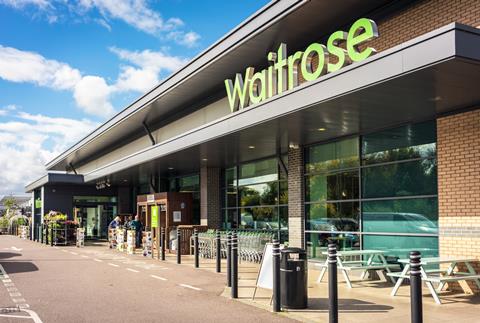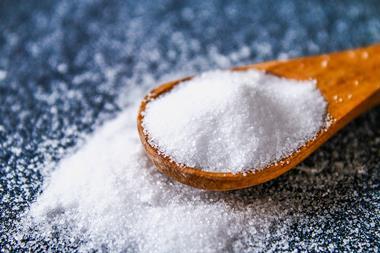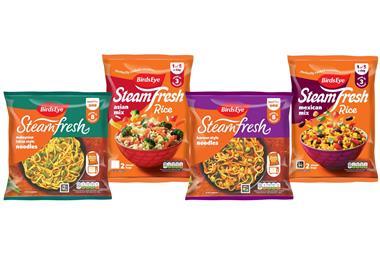
The big news in retail this weekend was the revelation that John Lewis is considering reinstating its staff bonus scheme for the first time in four years following a turnaround in its performance at flagship stores.
If the payout is bought back, the retail partnership – which includes Waitrose – will be paying the much-loved bonus to 69,000 members of staff across the company.
Internal documents, which have been seen by The Financial Times, outline that the group’s board is expected to recommend reinstating the payout if pre-tax profits reach £200m for the year to February 2026.
With profits last year of £126m (up from £42m) and sales also believed to have increased in the first half of 2025, John Lewis is expected to hit the £200m threshold, although the bonus itself will depend on trading continuing to perform well for the rest of this year.
A John Lewis spokesman said: “As we said at our full year results in March, we expect to increase our profitability in the coming year.”
Chancellor Rachel Reeves has been been warned that any tax rises on retailers in the October budget would further increase food prices in the run-up to Christmas.
The Sunday Times reported that BRC chief executive Helen Dickinson said that increasing business rates for large stores and supermarkets would “add to inflation at the worst possible moment”.
Dickinson said many retailers were “already at breaking point” following last autumn’s tax rises, adding that further costs would push prices up just as “the Bank of England is trying to bring inflation down”.
A recent BRC survey of chief executives revealed that, while retailers have absorbed many additional costs, two-thirds of them intend to raise prices in response to the increases in national insurance.
Donald Trump’s tariffs continue to make waves across the business world as The Times reveals that UK-listed companies have issued a record level of profit warnings as concerns over international affairs continue to mount.
The number of warnings rose by 20% in the second quarter of 2025, with higher trade costs, government policy changes and geopolitical uncertainties introduced by the Trump adminsistration named as a “leading factor” behind almost half (46%) of the warnings, up from 4% in the same period in 2024.
According to EY, which produced the report, this was the highest percentage of companies citing geopolitical issues in more than 25 years. It advised retailers that it was “essential” they continued to invest in technology such as AI, despite higher trading costs, the rise in National Insurance contributions and the national living wage.
The Telegraph brings a human element to the US tariffs story, reporting that Keir Starmer’s trade deal has landed one of Britain’s oldest stilton cheesemakers facing an additional bill of almost £1m in extra levies.
Bill Mathieson, chief executive of the 114 year-old Long Clawson Dairy, told the paper: “We’ve got about £10m of sales going into the US … you take that and we’ve ended up with an increase of just under £800,000. The trade deal has had no impact in terms of benefit for dairy [producers]. It’s certainly not helpful.”
Under the terms of the trade deal, tariffs on British steelmakers were reduced to zero, but a 10% levy remained on other goods – such as cheese.
The gobal cost of rising food prises due to extreme weather caused by the climate crisis could lead to more ”malnutrition, political upheaval and social unrest”, says The Guardian, as new research reveals the world’s poorest are being hit by shortages of staple foods.
Surges in the price of basics such as potatoes, cabbages, onions and cocoa have all been linked to extreme weather conditions have increased in both severity and frequency since 2020. The high price of these staples can also impact public health as low-income households cut back on expensive fruit and vegetables, according to the report.
Global cocoa prices have spiked by as much as 300%, following a drought across Ghana and Ivory Coast, where 60% of the world’s cocoa is grown. The Grocer has previously reported on the short crop and the impact it has had on UK chocolate prices throughout 2024 and into early 2025.
The study investigated examples across 18 countries from 2022 to 2024 where price spikes were associated with heat, drought and heavy rain or floods.
The news that frequent shops to the supermarket can be a pleasurable experience is no surprise to many in the grocery sector, but it seemed to be a new concept for the writer of an opinion piece in The Telegraph.
While Brits reserve “nostalgic affection for farmers’ markets and indy food shops”, we have apparently forgotten how supermarkets have transformed our eating habits, pointing out that most of us spend more time at the supermarket each week than at church.
The piece goes on to say it is time for us to ”show a little more affection for our supermarkets”, which it describes enthusiastically as ”cathedrals of culinary consumption”.



















No comments yet